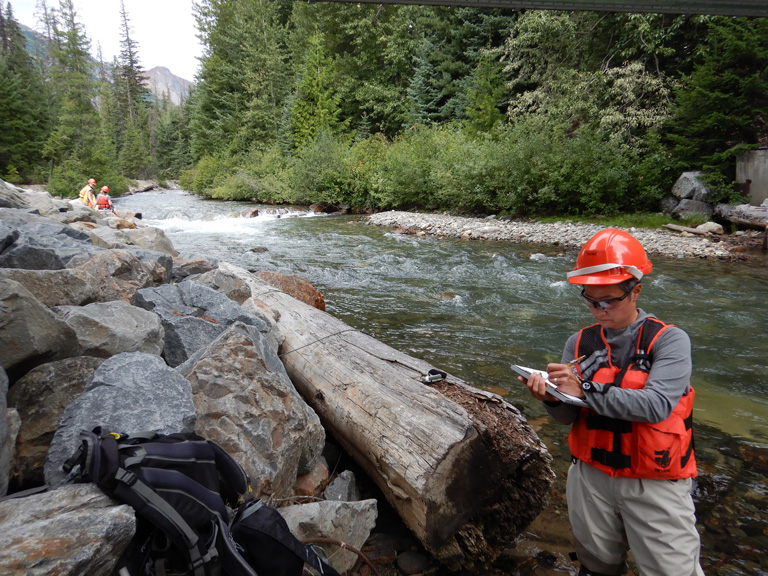


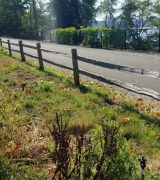
King County Department of Natural Resources and Parks (DNRP) has constructed multiple critical areas mitigation sites as required by the local jurisdictional code to offset impacts from DNRP projects across King County. Confluence managed consecutive contracts from 2015-2020 to perform post-construction mitigation site monitoring and reporting for numerous such mitigation sites. Monitoring efforts typically included […]
The annual monitoring included quarterly site inspections to evaluate and document maintenance needs, and fall (and sometimes spring) monitoring and reporting to evaluate the performance of the mitigation site compared to the established performance criteria. Typical performance criteria included plant survival, percent cover of native and invasive species, and presence of functional wildlife habitat features. Mitigation site assessment methods typically included conducting plant census, continuous line intercept transects, vegetation plot quadrats, visual inspections, and photo-point documentation to compare plant growth year to year. To improve monitoring efficiencies, Confluence created several custom monitoring templates that allow for rapid assessment of each site. The quarterly site inspections provided DNRP with guidance necessary for site maintenance and upkeep between annual monitoring events. Mitigation monitoring field effort results were documented in detailed reports that satisfy the monitoring report requirements of local jurisdiction’s code. Confluence typically closed mitigation site monitoring as soon as the site met all performance standards.
Confluence successfully guided 5 of the DNRP mitigation projects to completion before end of the contract. Through advising maintenance efforts and documenting site progress, Confluence ensured the long-term success of these mitigation sites to the satisfaction of the mitigation plan permit requirements.
Project Location
King County-Wide
Client
King County Department of Natural Resources and Parks
Project Timeline
2015 – 2020

Holden Mine was a copper mine active from 1938 to 1957. Through acquisition of former operators, Rio Tinto took over remediation of the relic copper mine as required by the Comprehensive Environmental Response, Compensation, and Liability Act (CERCLA). Phase 1 of the Remedial Action (RA) encompassed 170 acres and caused both temporary and permanent impacts […]
Confluence conducted a WOTUS impact assessment involving 24 wetlands and 3 streams to characterize the extent and functional effect of impacts that occurred to WOTUS from the RA. During the site assessment, Confluence scientists delineated and rated wetlands to establish the post-impact conditions for comparison with pre-impact baseline conditions done by others. Mitigation ratios were developed to determine the total compensatory mitigation need according to impact type and wetland category. Confluence determined that 4.8 acres of wetland impact and 1 acre of aquatic resources impact resulted from the RA and that 19.4 acres of wetland establishment (or equivalent) was appropriate to offset the ecological losses sustained.
Confluence used a watershed approach to identify candidate mitigation sites, then assessed them to determine the potential ecological lift of each. Due to the relatively undisturbed nature of the upper Chelan watershed and the semi-arid environment of the lower Chelan watershed, wetland mitigation opportunities were limited, and a creative solution was required. Confluence identified a 2,100-acre property near Chelan, the Bear Mountain property, that was available for preservation through site acquisition. A field effort evaluating this property revealed several locally rare perennial streams and wetlands that would likely be degraded if the site were to be developed. Confluence recommended acquisition of this entire property as the best option for mitigating impacts to both streams and wetlands as an out-of-kind resource trade-off. Following review of the mitigation site options, the lead agencies (U.S. Forest Service and Environmental Protection Agency in cooperation with the Washington State Department of Ecology and the Confederated Tribes and Bands of the Yakama Nation) agreed the Bear Mountain preservation site (now Chelan Coulee Preserve) was the most viable and ecologically beneficial mitigation option for Phase 1 impacts. The Chelan Coulee Preserve is now under the stewardship of the Chelan Douglas Land Trust and will continue to provide valuable habitat and ecological functions in a rapidly growing area for generations to come.
Confluence is conducting annual biomonitoring, including surveys of fish population, benthic macroinvertebrates, water quality, and physical habitat, in Railroad Creek to assess the performance of the Phase 1 RA relative to baseline conditions prior to RA implementation in 2013. Confluence has been conducting the annual biomonitoring since 2019 (which was year 2 of monitoring). Work involves sampling fish and benthic invertebrates and collecting related data at 7 locations in Railroad Creek downstream, within, and upstream of the Holden Mine site. These data are then analyzed with respect to biological metrics used to interpret the health of the biological community. Findings are presented in annual biomonitoring reports. Thus far, biomonitoring is indicating improvement of both the benthic macroinvertebrate and fish communities since implementation of Phase 1 of the RA.
Project Location
Chelan County, WA
Client
Rio Tinto
Project Timeline
Ongoing since 2019
“Confluence’s expertise, creativity, and ability to collaborate with a variety of stakeholders was key to our success in finding a solution for mitigating our impacts from Phase 1 while also providing Rio Tinto an opportunity to help preserve and protect key habitat in perpetuity.”
—Craig Stevens, Rio Tinto Project Manager
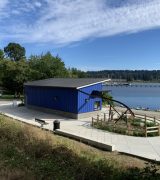
The improved Log Boom Park on the shore of Lake Washington in Kenmore, Washington, opened on June 30, 2022. Confluence was part of a multidisciplinary team led by engineering firm Mott Macdonald and including J.A. Brennan Associates landscape architects and Davido Consulting Group civil engineers. The citizens of Kenmore had been seeking better waterfront access […]
The citizens of Kenmore had been seeking better waterfront access on Lake Washington since the City incorporated in 1998, noted Maureen Colaizzi, Parks Project Manager. In 2005, the City adopted a Master Site Plan for Log Boom Park to create an expanded beach and restored shoreline. The project goal was to improve the built environment for park users while enhancing ecological functions of existing wetlands, shoreline habitat, and aquatic habitat.
Environmental elements of the design include protection of on-site wetlands, removal of invasive plant species, and plantings of native vegetation (over 100 new trees and 1,000 new shrubs) in riparian, wetland, and upland areas. In addition, in-water areas have been enhanced by adding gravel and large woody material to reduce shoreline/wetland erosion, provide rearing areas for migrating fish during high lake levels, and provide improved foraging opportunities for juvenile fish.
Confluence led the effort to obtain local, state, and federal permits for the project. Work involved critical areas studies and report preparation, code consistency analyses, and development of mitigation plans for the redesign of the park. In addition, Confluence developed a Habitat Conservation and Stewardship Plan that combines the monitoring and maintenance for the new plantings and restored habitat at the park. This document clearly describes activities needed to both monitor compensatory mitigation areas for permit requirements and ensure future stewards of the park understand the project restoration goals and how to communicate their importance to the public. Currently, Confluence is working with the City to coordinate the long-term monitoring (5 years) and maintenance of the park.
Log Boom Park now has new recreational amenities in the westernmost part of the park for all to enjoy. “It is amazing to see how the community has embraced the improvements,” Ms. Colaizzi said. “I am proud to be part of the team to make this goal a reality.”
Park vendor “Captain Steve” agrees. Co-owner of WhatSup, which rents paddleboards and kayaks in the new boat rental building, Captain Steve said, “Whether they are Kenmore residents or they come from Seattle, people absolutely love it here. They bring their boards or boats and they have barbecues. Kids use their buckets and shovels. They absolutely love this beach.”
Project Location
Kenmore, WA
Client
City of Kenmore
Project Timeline
Ongoing since 2015
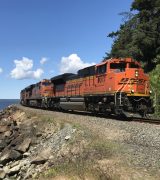
As part of a multi-entity team, Confluence has completed the first 2 phases of this grant-funded project – managed by the Tulalip Tribes – to restore nearshore habitat in Puget Sound along 73 miles of Burlington Northern and Sante Fe (BNSF) rail line between Olympia and Blaine, Washington. The latest deliverables included preliminary restoration designs […]
Rail construction has divided coastal habitats from the nearshore, limiting movement of fish and disrupting natural habitat-forming processes. The impact to sensitive species such as Chinook salmon and Southern Resident killer whales has been significant. The goal of this multi-phase project is to develop a prioritization framework that guides implementation of projects that restore fish passage and create habitat in critical coastal areas along railroad-impacted shoreline. The project approach includes consideration of local and regional restorations objectives, with the goal of improving the ability of funders to evaluate the benefits among restoration projects, as well as inform mitigation planning along the railroad.
Confluence’s Phil Bloch led the work to identify all locations where streams cross the BNSF Railway along the Salish Sea shoreline between Olympia and Canada. He led the survey of culverts and in-field assessment of culvert conditions and adjacent habitat for 196 stream crossing structures and 13 embayments. The project team created and applied a site prioritization framework that identified stream or embayment habitat priorities for Chinook salmon. Prioritization was based on likelihood of use by juvenile Chinook salmon and quality of upstream habitat. The project team identified 44 streams and 7 embayments as highest priority.
Product deliverables in the first phase included a GIS database containing new spatial data, field inventory information, and prioritization scores for stream crossings and embayments. Phil led coordination with lead entities, tribes, regulatory agencies and the Puget Sound Partnership to promote culvert improvements. In the recently completed second phase of the project, Phil worked with local restoration partners and BNSF to initiate implementation of stream and stream crossing restoration actions, develop preliminary designs for 3 high-priority stream crossings, and identify programmatic designs and permit strategies for all stream crossings based on characteristics of the stream crossing including small culverts, large culverts, and spanning structures to restore fish passage and stream function. The next phase will involve completing design and permitting of replacement structures and seeking funding to implement the restoration projects.
The Confluence-led project team included Environmental Science Associates, the Tulalip Tribes, Shannon & Wilson, and Hanson Professional Services. Staff at Coastal Geologic Services contributed to the first phase of the project. BNSF provided strategic and safety guidance, and access to sites. An advisory panel included the Washington departments of Fish and Wildlife and Ecology, Snohomish County, and the South Puget Sound Salmon Enhancement Group. More information about this important work can be seen at the following sites:
Project Location
Olympia to Blaine, WA
Client
The Tulalip Tribes
Funding Source
Puget Sound National Estuary Program
Project Timeline
Ongoing since 2018
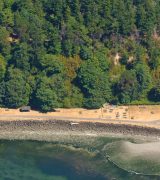
Confluence managed the first phase of this project to enhance habitat for salmon. Key goals of the project included realigning McSorley Creek to restore stream and estuary habitat and removing marine shoreline armoring to create a dynamic and natural beach front and nearshore area, as well as redesign of the park recreational facilities. Approach Confluence […]
Confluence managed a multidisciplinary team to deliver all aspects of the project through the preliminary phase and 30% design. Project activities included robust site investigations of critical areas, geomorphology (e.g., beachfront sediment grain size analysis), cultural resources (e.g., Native American artifacts), habitat, topography, and bathymetry; an eelgrass survey; an alternatives analysis (including substantial public involvement); engineering (preliminary and final design); National/State Environmental Policy Act (NEPA/SEPA) review; and permitting. Several unique and diverse challenges required development and implementation of special studies. For example, an eroding scarp in need of stabilization required geotechnical bluff analysis, and the existence of several Civilian Conservation Corps (CCC)-era state park structures and a shell midden triggered Tribal coordination and a cultural resources assessment and development of a plan to relocate the structures and protect the Native American site. Completed work included the final feasibility and alternatives analysis, and the 30% design for the beach and estuary restoration design and the park redevelopment site plan. The redevelopment site plan included new parking areas, open spaces, trails/walkways, new beach access, SCUBA diving stations, a new multi-use public building, playground, and relocations of CCC-era stone fire pits and other amenities.
This project was partially funded by the Puget Sound Acquisition and Restoration Fund and the Washington State Recreation and Conservation Office. Due to grant funding requirements, the work needed to be completed on an extremely short timeframe, and Confluence developed and implemented a complex critical path schedule and budget to achieve the necessary end date. Confluence also assisted with grant applications for future phases of the project.
Confluence helped the County position this project to achieve its overarching goal to restore ecological processes and habitats in a sustainable manner that also continues to meet the landowner requirements for the area; namely, a high-quality recreational park experience for visitors.
Project Location
Des Moines, WA
Client
King County Department of Natural Resources and Parks
Project Timeline
2015 – 2019
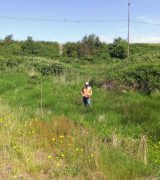
The City of Stanwood’s Community Development Department is developing a master plan to convert a former dairy farm, the “Ovenell Farm,” into a park and historical site. Confluence has conducted several tasks to support the master planning process and future permitting for this project, including completing a wetland and ordinary high water mark delineation, Shoreline […]
During the critical areas studies in 2015 and 2016, Confluence rated the wetlands and evaluated the site for mitigation opportunities and constraints. Confluence prepared a critical areas study report that met the requirements of the Stanwood Municipal Code, Washington State Department of Ecology, and the U.S. Army Corps of Engineers. The report included the results of the wetland and ordinary high water delineations and wetland ratings. The report also summarized the relevant regulations of the delineated wetlands, ditches, and the Stillaguamish River on or adjacent to the site. Confluence summarized the relevant permits potentially needed for the proposed park and discussed the potential mitigation opportunities on the site.
In 2018, Confluence assisted with an update to the City of Stanwood Shoreline Master Plan for the Ovenell and Hamilton properties. The proposed park improvements on both these sites have potential to impact existing wetlands, streams, and buffers. These potential impacts necessitated an update to the Shoreline Master Plan Confluence’s completed tasks include conducting a site reconnaissance, developing conceptual park designs and associated mitigation concepts that are appropriate to achieve regulatory approvals, developing a summary of Shoreline Master Plan uses and policies that may need to be revised on order to allow such uses, and developing a preliminary cost estimate to construct the park features. The update was approved in 2019.
Currently, this project is in scoping for the 30% design, for which Confluence will update the wetland delineation and develop a permit matrix.
Project Location
Stanwood, Washington
Client
City of Stanwood, Washington
Project Timeline
2015-Present
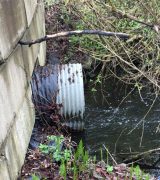
Snohomish County Surface Water Management (SWM) proposed 29 culverts and 2 water quality facilities for replacement as part of a program to improve fish passage and habitat conditions. Confluence managed the effort to determine applicable U.S Army Corps of Engineers (Corps) regulatory requirements for the proposed projects. Confluence worked with design engineers to assess field […]
The culvert replacements have been designed to meet the current Washington Department of Fish and Wildlife (WDFW) guidelines for fish passage, and to correct barriers to fish passage. Stream channel, bank modification, and restoration/mitigation are elements of these projects. Confluence’s work involved evaluating culvert and water quality facility designs as well as construction means and methods to determine applicability of Corps Section 404 maintenance exemptions or Nationwide Permits. Confluence completed field investigations of each proposed project to determine potential impacts to waters of the United States. If it was determined that the Corps had jurisdiction over the proposed activity, we developed a permitting approach to address anticipated regulatory requirements. Project work also involved coordination with Snohomish County SWM, WDFW, the Corps, and the Tulalip, Muckleshoot, and Stillaguamish Indian tribes. Several of the culverts have already been replaced over the 2017 and 2018 in-water work windows, with the remaining culverts to be replaced during in-water work windows between 2019 and 2022.
Each of the culvert replacements triggered multiple regulatory approvals. Confluence helped SWM maximize avoidance and/or minimization of project environmental impacts to increase efficiency and decrease costs of permitting and constructing the projects. When the proper replacement solution resulted in unavoidable impacts, Confluence documented the alternatives assessment as well as the reasoning for the selected replacement solution. For some culvert replacements, additional restoration or mitigation was needed for those unavoidable impacts, and Confluence worked with Snohomish County to develop the mitigation design while still providing the necessary natural resource improvements.
Project Location
Snohomish County, Washington
Client
Snohomish County Department of Public Works—Surface Water Management
Project Timeline
Ongoing since 2017
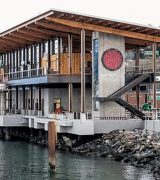
In 2020, Washington State Department of Transportation completed construction on the new Mukilteo Ferry Terminal, part of the State Route 525 transportation corridor connecting the Seattle-Everett metropolitan area to Whidbey Island. The project involved removal of a 3,000-foot-long pier supported by 4,000 creosote-treated piles, and dredging of potentially contaminated sediments beneath the existing pier, followed […]
During Phase 1 of the project, Confluence’s Sasha Visconty, while working as Axis Environmental, led tribal strategy and provided ESA strategic oversight and permit direction for the project. The property being considered for the new terminal had significant cultural resources on the site, and was an area used by 4 tribes for treaty fishing activities. The Tribal Team led by Ms. Visconty developed a project approach to resolve the tribes’ issues and obtained permits for the project. Four separate tribal agreements and operations protocols were drafted.
Ms. Visconty also managed eelgrass and macroalgae vegetation surveys conducted by Confluence scientists at the site for 3 separate alternatives under consideration. Confluence scientists designed and implemented the eelgrass and macroalgae surveys for both the first and final phases of the project. The first effort in 2011 supported the National Environmental Policy Act (NEPA) environmental impact statement (EIS) alternative analyses for the planned replacement of the Mukilteo Ferry Terminal. Three alternative locations were surveyed by SCUBA and underwater video to document existing conditions and determine benthic habitat including eelgrass and macroalgae presence. The 2017 surveys were conducted to support the final design phase and were conducted by underwater video. Maps were produced for the construction contractor to facilitate avoidance of potential impacts to eelgrass and macroalgae during construction. For each phase, reports were prepared detailing the study results to satisfy Washington Department of Fish and Wildlife eelgrass/macroalgae survey guidelines and summaries were prepared for inclusion in the NEPA EIS and supporting discipline reports and permitting documents.
Early engagement and coordination between the Tribal Team, mitigation program, and NEPA lead ensured successful and on-time resolution of tribal issues, ESA consultation, and permitting. The 2011 aquatic vegetation surveys helped identify a preferred alternative for the project and documented avoidance and minimization of potential impacts to eelgrass and macroalgae. Additional surveys in 2017, confirmed areas to be avoided during construction and areas mapped by Confluence were provided to the construction contractor ensure successful avoidance and minimization and to fulfill permitting requirements.
Project Location
Mukilteo, Washington
Client
Washington State Department of Transportation Ferries Division
Project Timeline
2012-2020
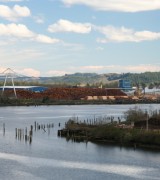
Confluence provided permitting assistance for the construction of an expanded wood-manufacturing facility in Aberdeen, WA. Work included field surveys on over 100 acres of the project site to delineate wetlands, identify mitigation opportunities, and evaluate fish and wildlife habitat. Confluence staff developed detailed plans to rehabilitate wetlands along the Chehalis River and in Elliott Slough […]
The project included planting 355 trees and 1,270 container shrubs along 820 linear feet of the Chehalis River, and 821 trees and shrubs and 275 live cuttings on more than 15,000 square feet of Elliott Slough wetlands. Poor soil conditions required addition of soil amendments, including topsoil, organic compost, and mulch. Confluence staff performed all 5 of the required years of monitoring at the Chehalis site, summarized monitoring results in annual reports, and oversaw maintenance to ensure the plants developed into a properly functioning shoreline ecosystem. The mitigation area was deemed a success by the U.S. Army Corps of Engineers (Corps).
During final year of monitoring at the Elliott Slough site, a local public utility district removed all vegetation. To compensate, Confluence was contracted to evaluate other properties owned by Sierra Pacific Industries for mitigation opportunities. A new site was identified (McNeal site), and Confluence prepared the mitigation plan and coordinated with the Corps on moving the mitigation area to a new location. In 2016, Confluence provided oversight during construction of new mitigation area has conducted yearly monitoring of the site.
Project Location
Aberdeen, Washington
Client
Sierra Pacific Industries
Project Timeline
Ongoing since 2008

Sierra Pacific Industries (SPI) developed industrial land in Frederickson, Washington. Confluence Environmental Company served as the lead consultant for critical areas studies; wetland mitigation design and planning; environmental review; and local, state, and federal environmental permitting for the property. Confluence led the multi-disciplinary team from design of site development through design of on-site and off-site […]
SPI’s goal was to meet required permitting for a 250-acre property proposed for an industrial park. Confluence led the following efforts: preparing State Environmental Policy Act (SEPA) checklists and Joint Aquatic Resources Permit Applications to support the proposed developments; completing submittal of site development documents; preparing critical areas studies; negotiating jurisdictional determinations for on-site wetlands; preparing biological evaluations for compliance with the Endangered Species Act; managing cultural resource studies; developing plans and strategies for critical areas mitigation; managing traffic impact analyses; managing air and noise studies; coordinating with site survey and civil engineering to support project needs for site access and mitigation planning; and coordinating and managing permitting for local, state, and federal permits.
Confluence addressed the impacts of the proposed project on wetlands through development of detailed mitigation plans using the Washington State Department of Ecology’s Credit/Debit tool. As part of the mitigation design, Confluence conducted critical areas studies and permitting on 40 acres of off-site property. Confluence provided construction oversight of the wetland mitigation area and has performed the first 3 years (through 2022) of mitigation monitoring using traditional monitoring methods as well as unmanned aerial systems (drones) to collect color photos and infrared imagery. The infrared imagery is being used to identify distressed vegetation, facilitating adaptive management. In addition, Confluence assisted SPI in identifying and designing off-site mitigation for impacts to Oregon White Oaks, and we have conducted 4 years (through 2022) of Oregon White Oak monitoring.
In a follow-on project for another applicant, Confluence expanded the original mitigation area by 3 acres to provide compensation for unavoidable wetland impacts for an unrelated but adjacent industrial development.
Confluence employed a unified approach to project-development planning and critical areas mitigation resulting in a combination of on-site and off-site mitigation that supports the development of the property and provides a cost-effective and ecologically beneficial solution to a variety of critical areas impacts.
Project Location
Pierce County, Washington
Client
Sierra Pacific Industries and Logistics Property, LLC
Project Timeline
Ongoing since 2013
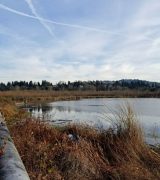
King County Wastewater Treatment Division is upgrading the King County sewer system from the North Mercer Island Pump Station to Sweyolocken Pump Station in Bellevue. Phase 1 included a multi-stage alternative analyses process. For this project, Confluence provided technical expertise related to wastewater conveyance and infrastructure work in sensitive habitats such as the Mercer Island […]
King County Wastewater Treatment Division is upgrading the King County sewer system from the North Mercer Island Pump Station to Sweyolocken Pump Station in Bellevue. Phase 1 included a multi-stage alternative analyses process. For this project, Confluence provided technical expertise related to wastewater conveyance and infrastructure work in sensitive habitats such as the Mercer Island shoreline, Lake Washington nearshore, and Mercer Slough.
Potential impacts to sensitive resources (e.g., wetlands, streams, shorelines, steep slopes, etc.) were evaluated in Luther Burbank Park on Mercer Island, and Enatai Beach Park and Sweyolocken Park in Bellevue to determine avoidance and minimization measures for alternative pipeline alignments. Other key steps completed include establishing permitting and environmental criteria to use in screening of alternatives; ensuring consistency of all screening criteria with regulatory definitions (e.g., Clean Water Act 404 (b)(1)) to simplify future permitting efforts; conducting assessments of environmental conditions associated with the alternatives; and developing a permit acquisition plan identifying permitting processes and relative permitting challenges of alternatives. Currently we are preparing environmental documentation and permit applications to address the impact associated with the planned project including impacts to streams, wetlands, and Section 6(f) resources. Confluence’s regulatory relationships and technical expertise allowed early elimination of certain alternatives as well as more detailed exploration of in-water options initially considered non-permittable.
This project has included resolving conflicts between project needs and permitting constraints, allowing for cost-/time-effective permitting plans to be developed. Working with project engineers to adjust project when possible to avoid and minimize impacts to regulated areas has allowed project permitting to proceed efficiently.
Project Location
Mercer Island, WA, to Bellevue, WA
Client
King County Wastewater Treatment Division
Project Timeline
2014 – Ongoing
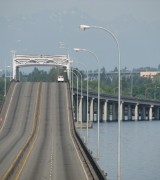
Washington State Department of Transportation (WSDOT) is replacing the State Route (SR) 520 bridge. The work is divided into three projects: West Side/Floating Bridge, East Side Transit and HOV, and Pontoon Construction. Confluence’s leadership in implementing the environmental strategy has enabled WSDOT to meet a very aggressive schedule for environmental project delivery on one of […]
Washington State Department of Transportation (WSDOT) is replacing the State Route (SR) 520 bridge. The work is divided into three projects: West Side/Floating Bridge, East Side Transit and HOV, and Pontoon Construction. Confluence’s leadership in implementing the environmental strategy has enabled WSDOT to meet a very aggressive schedule for environmental project delivery on one of the largest and most complex projects in Washington.
Confluence is leading the permitting, mitigation, and Endangered Species Act (ESA) compliance efforts on this $4.6 billion project, all in coordination with the NEPA/SEPA process. Roles include: Mitigation Technical Lead, providing oversight for mitigation planning, including strategy development and site construction; ESA Technical Lead, developing overall strategy for engagement with the Federal Services; and Regulatory Compliance Manager/Permitting Lead, coordinating with regulatory agencies to deliver the comprehensive set of documents needed to obtain the state, federal, and local permits for the three projects. Confluence is also a Cultural Resources technical lead, a key regulatory approval process element.
The Program produced two separate environmental impact statements and one environmental assessment. Confluence developed the implementation schedule of the NEPA/SEPA work, provided technical discipline report contributions, and primary review support. The consistency between the NEPA, ESA, permitting, cultural resources, and mitigation analyses has been essential in timely delivery of defensible final environmental permits and approvals. Confluence completed numerous biological assessments, which successfully led to multiple letters of concurrence and biological opinions, as well as nearly 75 separate federal, state, and local permits, approvals, and modifications.
The work includes documenting project impacts and developing conceptual and final mitigation plans that document habitat restoration for 14 separate mitigation sites. In total, the mitigation plans restore approximately 185 acres of habitat, including a 64-acre estuary restoration and a 31-acre flood-plain wetland and stream restoration. Confluence also provided ongoing mitigation site construction support. Eight sites have been constructed as of January 2017.
Currently, Confluence is providing ongoing management of a complex multi-agency permitting process for the project with the City of Seattle, WDFW, Washington Department of Ecology, U.S. Army Corps of Engineers, and Coast Guard. This work has included permitting several ancillary prerequisite projects such as studies and exploratory activities and integrating environmental requirements into construction Plans, Specifications, and Estimates. In addition, we are coordinating environmental compliance with construction activities such as environmental monitoring and fish exclusion.
Specific results of this project include the following: (1) successful completion of the environmental process, including securing the permits and other regulatory approvals necessary to begin construction; (2) receipt of a favorable biological opinion documenting the results of the ESA consultation; (3) negotiation and implementation of sound mitigation plans that not only meet ecological objectives but also efficiently utilize public funds to satisfy mitigation requirements; and (4) successful ongoing support of multiple construction phases, including agency coordination and environmental approval revisions.
Project Location
SR520 Bridge, Seattle to Bellevue, Washington
Client
WSDOT
Project Timeline
Ongoing since March 2007
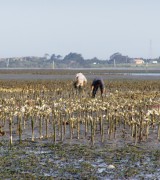
Confluence Environmental Company staff have worked with shellfish growers for many years, individually and collectively. Our scientists have provided regulatory compliance and permitting strategies; developed biological assessments, habitat plans, and permitting documents; researched shellfish ecology; and created study designs for a wide range of shellfish aquaculture projects. Confluence’s work with growers at the individual project […]
Confluence’s work with growers at the individual project level has included local, state, and federal permitting; field studies; and regulatory strategy for individual growers. These efforts, combined with strategic shellfish industry programmatic efforts such as the U.S. Army Corps of Engineers Nationwide Permit 48, have improved and reduced the individual permitting efforts required for existing and new shellfish aquaculture.
By recognizing the stewardship and intrinsic connections between growers and the aquatic environment, clients such as Pacific Coast Shellfish Growers Association, Taylor Shellfish Farms, Pacific Seafood/Coast Seafoods, Seattle Shellfish, and numerous smaller growers have benefited from Confluence’s expertise and understanding of resource agencies and their regulatory responsibilities.
The following projects are just a few representative examples of the work Confluence has conducted for shellfish growers:
Project Location
Various locations
Washington and California
Representative Clients
Pacific Coast Shellfish Growers Association, Pacific Seafood/Coast Seafoods, Seattle Shellfish, Hog Island Oyster Company, Arcadia Point Seafoods, Taylor Shellfish Farms, Various Smaller Growers in Washington
Project Timeline
Ongoing since 2002

Offshore wind farms are gaining ground as a source of renewable energy in the United States. Applicants developing such projects must seek approval from the federal Bureau of Ocean Energy Management (BOEM), initially to assess impacts of wind energy leasing and site assessment, then to assess impacts of installation, operation, and decommissioning as farms move […]
Confluence is supporting BOEM with NEPA, ESA, MSA, and FWCA processes for wind farm permitting on the Outer Continental Shelf (OCS) in federal waters where most wind farms are being proposed. Proposed projects include onshore portions and elements located in state territorial waters.
Confluence provides the following analyses and documents:
These documents examine the proposed project timeline including construction, years of operation, and conceptual decommissioning of the wind energy facilities. Project construction and operation considerations include noise, physical placement and installation of project infrastructure, wind turbines, vessel movements, artificial light, electromagnetic fields, and elevations in temperature. The analyses also examine effects to factors important for managed species to thrive, including water quality parameters and substrate.
Confluence’s technically sound analyses and excellent working relationships with regulatory agencies helps successfully move projects through the NEPA, ESA, MSA, and FWCA processes.
Project Location
Outer Continental Shelf of the Northeast United States
Client
Bureau of Ocean Energy Management
Projects
South Fork Wind Farm
Confidential, large-scale commercial wind farm
Project Timeline
Ongoing since 2018
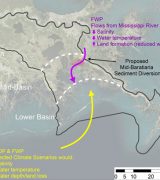
The Mid-Barataria Sediment Diversion project is a component of the Coastal Louisiana restoration strategy that proposes to divert sediment-laden water from the Mississippi River to restore natural deltaic processes and increase land area in the Barataria Basin. Over a 50-year time frame, the project will build and maintain 10,000 to 30,000 acres of upland and […]
Confluence managed the ESA biological assessment and EFH assessment to evaluate short-term construction effects as well as operational effects over the 50-year design plan for the project, located on the west side of the Mississippi River. The analytical approach deconstructed project activities to understand the potential impact mechanisms (e.g., turbidity, salinity change, etc.) as they relate to protected species’ preferences and tolerances as well as alterations to important habitats. This effort was conducted in close coordination with the Deepwater Horizon Oil Spill restoration plan for the project and a third-party environmental impact statement developed by the U.S. Army Corps of Engineers to ensure consistent analyses. Confluence guided the evaluation of projected impacts to ESA-listed species and EFH using habitat and species model outputs to project long-term operational effects of the project. These analyses focused on ESA-listed species including 5 species of sea turtle, 3 bird species, manatee, and pallid sturgeon, and EFH resources such as emergent marshes, submerged aquatic vegetation, soft bottoms, sand/shell, oyster reefs, and water column habitats.
The final environmental impact statement for this project was released September 19, 2022, putting the Mid-Barataria Sediment Diversion project one step closer to beginning construction in early 2023. Confluence is also assisting with the Mid-Breton Sediment Diversion project occurring on the east side of the Mississippi River. Louisiana’s Coastal Protection and Restoration Authority hopes that land/ marsh retention and growth resulting from sediment diversion projects such as these will provide communities with sustainability and protection from impacts of storm events and sea level rise, restore ecosystems, and boost local economies. With an estimated budget of up to $2 billion, the Mid-Barataria Sediment Diversion project is the largest sediment diversion project proposed to date and has attracted attention and scrutiny from regulatory agencies and the public. By using best available science and closely coordinating the NEPA and ESA processes with each other and with the OPA restoration plan, the ecological analyses have provided decision makers and the public detailed and accurate information on which to base their conclusions.
Project Location
Plaquemines Parish, Louisiana
Client
Louisiana Coastal Protection and Restoration Authority
Project Timeline
2018-2022
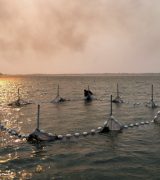
Few studies have addressed how and whether off-bottom oyster culture affects species use and abundance, or whether these differences affect the overall food web ecology of the system. Confluence designed and is leading a grant-funded study to research comparative habitat use of estuarine habitats with and without cultch-on-longline gear present. The project addresses the goal […]
Shellfish aquaculture, native eelgrass, and mudflat habitat have co-existed in Humboldt Bay for at least the last 60 years of commercial shellfish production, and for more than 120 years since the first attempts to introduce cultured shellfish in 1896. This project addresses questions about the environmental impacts of shellfish production using off-bottom oyster aquaculture growing techniques. Specifically, this study compares fish and invertebrate populations at sites where oysters are grown commercially to similar habitats that do not have oyster aquaculture present. This study focused on 3 resources, asking “Does oyster culture alter (1) fish assemblages, (2) invertebrate assemblages (prey resources), and (3) the food web?
Fish: By building an enclosure net, research scientists measured fish populations at 4 locations: (1) with oyster culture over eelgrass, (2) without oyster culture over eelgrass, (3) with oyster culture over mudflat, and (4) without oyster culture over mudflat. While the timing and abundance of fishery species varies seasonally with some species and life stages occurring in Humboldt Bay for only short periods of time, the study found no significant difference between species abundance and assemblages between sites based on the presence of aquaculture gear. Fish are more abundant, and populations are more diverse in eelgrass habitats compared to mudflat habitats. Results were compared to earlier work by William Pinnix (U.S. Fish and Wildlife Service Supervisory Fish Biologist) and sampling by Brett Dumbauld (U.S. Department of Agriculture Research Scientist) in Humboldt Bay. These additional observations are consistent with the findings that oyster aquaculture does not appear to significantly affect fish population abundance or diversity. However, the underlying habitat type and specifically, the presence of eelgrass is associated with higher abundance of fish.
There are some underlying trends that would require additional sampling effort to verify. Sampling suggests that some larval or early juvenile fish species may be associated with oyster culture gear. These include juvenile herring and topsmelt. It is possible that the presence of culture gear in the water column provides these fish with either additional foraging or refuge habitat. These life stages are only present in the nearshore for relatively short periods of time so additional sampling during the late Spring time period would be needed to verify these tentative observations.
Invertebrate assemblages: Invertebrate samples were collected throughout Humboldt Bay during a winter and a summer sampling period to identify potential differences in invertebrate abundance or species. While invertebrates are more diverse and abundant in the summer sampling period, samples inside and outside of aquaculture suggest that aquaculture is not having a significant affect on invertebrate populations in Humboldt Bay.
Food Web: To understand how oyster culture may interact with the food web in Humboldt Bay, the project team hosted a symposium to gather input from current and past researchers to better understand how the food web in Humboldt Bay is structured and what data sets are available to support analysis of potential interactions. While there are several potential interactions, as field study portions of this study indicate, there is limited evidence that oyster aquaculture has significant impacts to the food web. Studies are ongoing to understand the interactions between aquaculture and eelgrass, as well as to understand whether the presence of aquaculture gear affects bird use of habitats.
Project Location
Humboldt Bay, California
Client
U.S. Department of Commerce: Saltonstall-Kennedy NOAA Fisheries Competitive Research Grant
Project Timeline
2016 – 2019
Document Links
Project Data
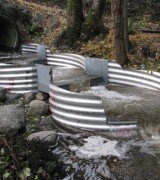
Confluence Environmental Company led a team to address fish passage and habitat restoration on Japanese Gulch Creek. The original scope of the project was to improve fish passage in a concrete junction box between upstream and downstream culverts, where streamflow was spread over a concrete apron in a very thin layer that was a severe […]
Basing our approach on an overall assessment of the conditions in the lower part of the Japanese Gulch Creek watershed allowed the team to identify multiple opportunities for fish passage improvement. To address the original project – the passage barrier posed by the junction box – the team developed a low-cost design combining baffles and boulders, which were field-engineered for maximum placement, to focus and deepen the flow of water. Cost of this design was significantly lower than the original budget, creating the opportunity for future phases. Fully funded additional phases included engineering a stacked-culvert fish ladder to improve fish passage at a perched culvert, and realigning the stream to a historical channel discovered during the watershed conditions assessment. Seed money allowed pursuit of a fourth phase requested by the Tulalip Tribes: reconnection of the creek to a nearby wetland for juvenile salmonid rearing. After funding was obtained, the Confluence team designed a fish ladder at the mouth of the Japanese Gulch Wetland where the outfall flows into Japanese Gulch Creek, making valuable off-channel habitat available for juvenile rearing. Currently, in Phase 5, Confluence is providing ecological input to the development of conceptual and preliminary designs for the tidal restoration of Japanese Gulch Creek estuary and assisting with securing grant funding.
Working closely with our team members and the City of Mukilteo staff, Confluence developed a plan to address the passage barrier in the junction box for a fraction of the initial cost projected by the City Engineer. This freed up project budget to address another upstream passage barrier in the form of a perched culvert. The team developed a cost effective solution to this barrier as well. In addition, the stream assessment identified a historical channel that Confluence believes was abandoned 40 to 60 years ago. The team developed a conceptual design to move the stream from its existing heavily engineered channel (three concrete weirs and a concrete flume) back to its historical channel thereby bypassing three additional passage barriers and opening up more than twice the length of channel and habitat for future fish use.
Project Location
Mukilteo, Washington
Client
City of Mukilteo
Project Timeline
June 2009 – Ongoing
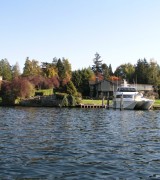
Confluence Environmental Company staff provided regulatory compliance support, environmental review, permitting, and strategic input integral for the construction of a 2.5-mile, in-lake sewer line segment along the Lake Washington shoreline. The project was particularly challenging because of the sensitive shoreline resources including Endangered Species Act (ESA)-listed species, the technical challenges of maintaining reliable sewer service […]
Confluence Environmental Company staff provided regulatory compliance support, environmental review, permitting, and strategic input integral for the construction of a 2.5-mile, in-lake sewer line segment along the Lake Washington shoreline. The project was particularly challenging because of the sensitive shoreline resources including Endangered Species Act (ESA)-listed species, the technical challenges of maintaining reliable sewer service to shoreline residents during construction, and the timing constraints for in-water work in Lake Washington.
Confluence’s Chris Cziesla led the effort to complete a shoreline fish and wildlife habitat inventory and prepare all environmental permit documents, including a full SEPA environmental impact statement, Shoreline Habitat Inventory, ESA biological assessment, Clean Water Act Section 404(b)(1) Analysis, and JARPA submittal (for Corps Section 404 and 10, Hydraulic Project Approval, 401 Water Quality Certification, Coastal Zone Management consistency, Shoreline permit). Mitigation and shoreline restoration, such as riparian improvements, bulkhead removal, invasive species removal, and substrate augmentation were also included as part of the project. Confluence’s technically sound analyses, timely response, and excellent working relationships with the client, regulators, and contractors paved the way for a dynamic team able to respond to changing project concerns and constraints. Strong relationships with the following regulatory agencies were critical in allowing the city and their construction contractor flexibility in their construction approach:
This project’s complicated construction schedule was met due to Confluence’s diligent communications, regulatory compliance strategy, clear and accurate analyses, thorough documentation, and responsive delivery of permits and modifications.
Project Location
Lake Washington Shoreline
Mercer Island, Washington
Client
City of Mercer Island
Project Timeline
2003 – Fall 2010
Confluence Environmental Company assisted the City of Seattle and SvR Design Company in developing draft and final engineering plans and specifications, as well as conducting construction oversight, to restore a piped section of Mapes Creek to an open-channel condition. The habitat restoration project is part of a larger stormwater drainage improvement project conducted by Seattle […]
Confluence Environmental Company assisted the City of Seattle and SvR Design Company in developing draft and final engineering plans and specifications, as well as conducting construction oversight, to restore a piped section of Mapes Creek to an open-channel condition. The habitat restoration project is part of a larger stormwater drainage improvement project conducted by Seattle Public Utilities in the Mapes Creek watershed.
This work builds on a previous watershed analysis and feasibility study for the project conducted by Confluence staff with SvR Design Company and Seattle Public Utilities in 2001. The stream restoration includes restoring approximately 400 linear feet of open stream channel with large woody debris, establishing a forested riparian zone, and reestablishing a functioning delta where the creek flows into Lake Washington. Confluence evaluated hydrology, hydraulics, and sediment dynamics to inform the design. Additionally, Confluence developed engineering design sheets and specifications pertaining to design of the restored channel, habitat features, and substrate. The restored channel was connected to Lake Washington in October 2014. Construction oversight activities included review of open-channel stream construction and placement of large woody debris to ensure compliance with design and permitting requirements.
The finished project provides high-value critical habitat for juvenile Chinook salmon and other salmonids in a key location (South Lake Washington) identified as a priority area in the Salmon Recovery Plan developed by Water Resource Inventory Area 8.
The project has received two awards: (1) a Green Globe award from King County in 2015, noting the City of Seattle for leadership in habitat restoration; and (2) a Design Excellence Award from the City of Seattle in 2017.
Project Location
Seattle, WA
Client
Seattle Public Utilities
Project Timeline
2012 – October 2014
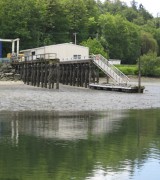
Confluence Environmental Company assisted Yachtfish Marine NW, Inc. (Yachtfish Marine), in preparing a Biological Evaluation (BE) for the redevelopment of their marina in Port Orchard, Washington. The redevelopment included replacing the existing 50-foot wood piers with new 100-foot grated decking piers; replacing 12,664 square feet of covered moorage area with 11,814 square feet of covered […]
To determine if listed species or their critical habitat were present in the vicinity of the proposed project, Confluence consulted the National Oceanic and Atmospheric Administration, National Marine Fisheries Service and the U.S. Fish and Wildlife Service. Confluence staff then evaluated the project for temporary and permanent impacts to existing environmental conditions and the project’s effects on species listed under the Endangered Species Act.
A unique design aspect to this project was the recycling of an existing boat shed. Rather than purchasing a new boat shed for their covered moorage and increasing the total area of overwater coverage in Puget Sound, Yachtfish Marine purchased an existing boat shed currently moored in Commencement Bay. Yachtfish Marine relocated the existing boat shed to Sinclair Inlet to use as its covered moorage. This unique recycling and relocating of an existing boat shed allows for an overall decrease in overwater coverage in Puget Sound.
The BE concluded that while temporary impacts from construction would occur, the overall effect to listed species is a benefit. The project resulted in a new marina that will allow Yachtfish Marine to continue to grow and meet market demands, while reducing the amount of overwater coverage in Puget Sound and improving long-term water quality by removing creosote pilings.
Project Location
Port Orchard, WA
Client
Yachtfish Marine NW, Inc.
Project Timeline
September 2010 – March 2011